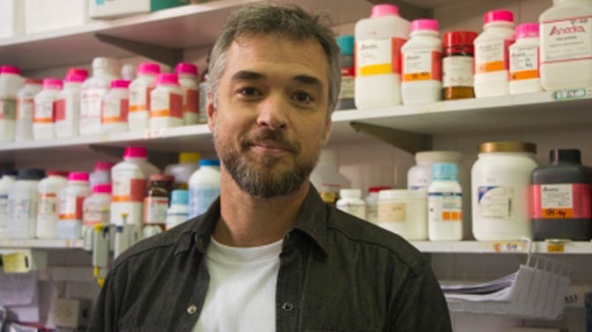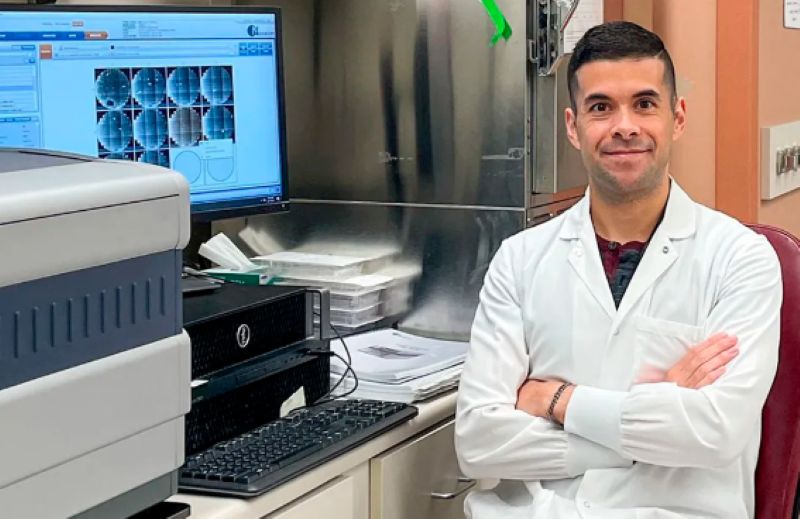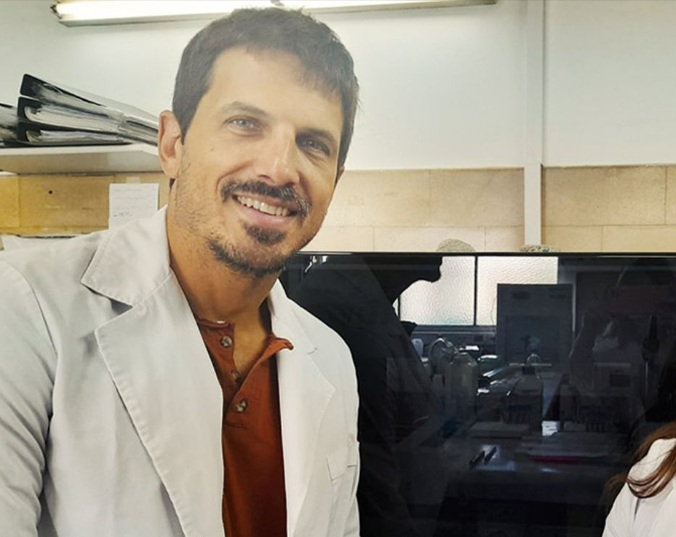Mariano Rolando Gabri is an Argentine researcher who graduated as a Molecular Biologist from the University of Buenos Aires.
He earned his PhD in Biology from the same institution, and his professional work is rooted in science and technology.
His research is closely connected to biology and medical sciences, with a strong focus on cellular and molecular biology as well as oncology.
Gabri and science
Gabri is a researcher at the National Scientific and Technical Research Council (CONICET), where his research efforts are concentrated on oncology.
He is also a professor and the director of the Biotechnology program at the National University of Quilmes in Argentina, where he leads a research group specializing in glycobiology and tumor immunology.
Glycobiology is the study of carbohydrates, while tumor immunology focuses on the interaction between the immune system and tumors.
Gabri and his team are developing research in these areas with the goal of advancing therapeutic strategies for cancer treatment.
He is also part of the Center for Molecular and Translational Oncology within the Department of Science and Technology at the National University of Quilmes, whose mission is to ensure that research findings contribute to the development of effective strategies for treating cancer.
In addition, Gabri serves as the development manager for Cankado in Latin America, a biotechnology company involved in cancer treatment.
Neuroblastoma
Among Gabri’s most notable research projects is his work on neuroblastoma, which he carries out with his team and whose progress has led to a better understanding of this disease.
Neuroblastoma is a type of cancer that typically affects children under the age of five and originates in the adrenal glands located above the kidneys. It arises from immature nerve cells and can spread to the stomach, chest, neck, and other regions.
Gabri and his team have made progress in identifying a connection between the activation of the NMYC oncogene and a higher presence of sugars that contribute to the cancer’s aggressiveness and outcomes.
An oncogene is a type of gene that, when activated, can cause a normal cell to become malignant and initiate a cancerous process.
Gabri’s research specifically focuses on glycans—carbohydrate molecules that attach to proteins on cell surfaces and are also found within cells.
By analyzing these molecules, the Argentine biologist studies how they interact with tumors and how they are expressed in cancer, especially in neuroblastoma.
His investigation aims to enhance the understanding of these sugars in order to design more effective treatments for this type of cancer in the future.
Childhood cancer
Childhood cancer refers to any type of cancer that develops in children, particularly from birth to the age of fourteen.
Besides neuroblastoma, the most common forms include leukemia, lymphoma, and brain cancer, among others.
Childhood cancer is one of the leading causes of death in this age group, and its prevention, diagnosis, and treatment are priorities for various health organizations.
The World Health Organization (WHO) and the Pan American Health Organization (PAHO), which is part of the WHO, have emphasized the importance of early diagnosis.
Both organizations assert that early detection of symptoms and signs of cancer in children can shorten treatment duration and improve its effectiveness.
Early diagnosis also tends to lead to less intensive treatments and better quality of life for children when cancer is identified promptly.
Key elements of early detection include spreading accurate information, not only to the families of patients but also to the broader community.
It is also essential to determine the extent of the disease and to begin treatment without delay.
Currently, childhood cancer is the focus of multiple campaigns, agendas, and programs that aim to raise awareness about the importance of early detection, the symptoms involved, and the different ways in which various types of cancer can present.
In Argentina, the National Program for Comprehensive Care of Children and Adolescents with Cancer was created to ensure access to information and guarantee medical care.
Among the researchers recognized for their contributions to oncology—particularly in pediatric cancers—Gabri stands out as one of the Argentine scientists dedicated to this field.
Within the wide range of cancers affecting children, the Argentine researcher has focused his efforts specifically on neuroblastoma.




